Black Tiger Leaves His Name
Le Thanh Marquis Nguyen Huu Canh was born in the year of the Tiger (1650) in Chuong Tin commune, Phong Loc district, now Van Ninh commune, Quang Ninh district ( Quang Binh ). He came from a family of military generals, knowledgeable about national affairs, and served Lord Nguyen.
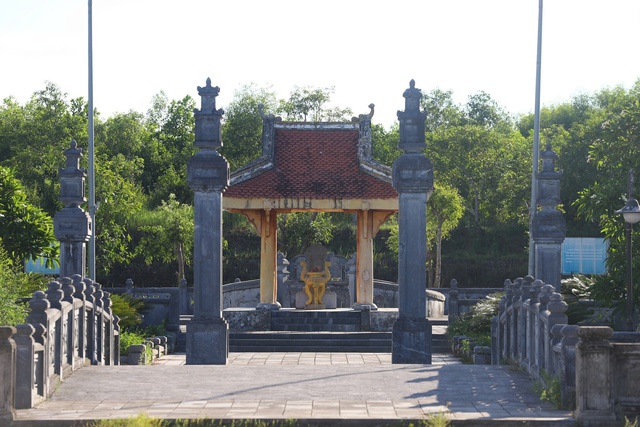
The tomb stele house of Le Thanh Hau Nguyen Huu Canh in An Ma mountain, Truong Thuy commune, Le Thuy district, Quang Binh
PHOTO: VT
Nguyen Huu Canh was the third son of Nguyen Huu Dat (titled Chieu Vu Hau), who came from a family of military generals and grew up during the Trinh - Nguyen conflict. He devoted himself to practicing martial arts, achieved many feats and was appointed Cai Co (a high-ranking military officer) by Lord Nguyen Phuc Tan at the age of twenty.
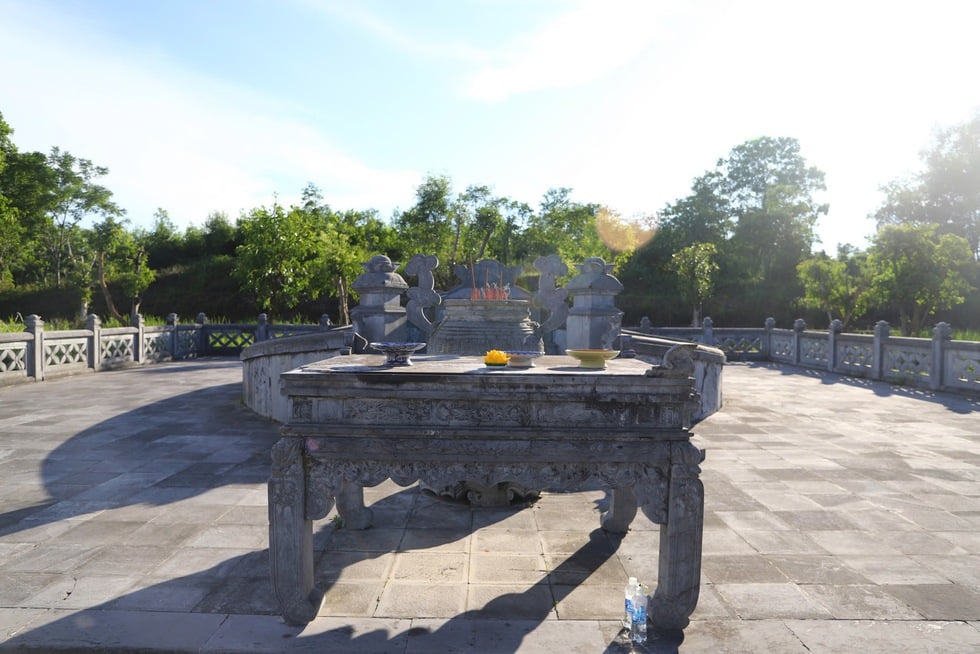
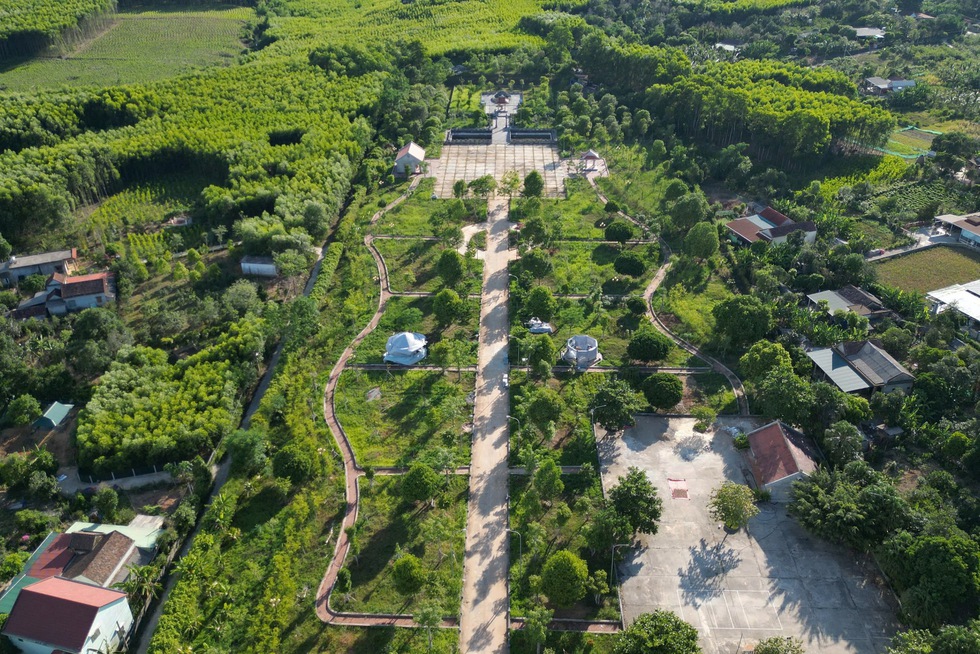
Tomb of Le Thanh Hau Nguyen Huu Canh in Truong Thuy commune, Le Thuy district, Quang Binh
Photo: VT
Because he was born in the year of the Tiger, had a heroic figure, dark skin, and was proficient in martial arts, Nguyen Huu Canh was given the title "Black Tiger" by his contemporaries. Later, due to his many contributions in suppressing rebels, pacifying the South, and founding the land of Saigon - Gia Dinh, he was given the title of Le Thanh Marquis.
On the way to open up the South, the Nguyen Huu military family left a branch of the Nguyen Huu clan in Phu Vang, Hue City. Currently, the Nguyen Huu sect's church is located in Mai Xuan hamlet, Duong No village, Phu Vang district (now Duong No ward, Hue city). The church still preserves a name plate from the genealogy of the Nguyen Huu sect of the following gentlemen: Nguyen Huu Dat and his four sons: Nguyen Huu Hao (title Hao Luong Marquis, author of the Nom story Song Tinh Bat Da ), Nguyen Huu Trung (title Trung Thang Marquis), Nguyen Huu Canh (title Le Thanh Marquis) and Nguyen Huu Tin (title Tin Duc Marquis).
Tiger martial arts "fell in love" by the Pho Loi river
The book Dai Nam Thuc Luc (volume 154) records that in the year At Mui (1835), King Minh Mang issued an edict to Thua Thien province to dig the Pho Loi River. "The King instructed the Cabinet: From the Huong River wharf, by both large and small rivers, one can reach the Thuan An seaport. But the main river is winding, the road is long, not as good as the road from La Y to Vong Dam, the small river has a short shortcut, the only problem is that it is shallow, when the water is low, it is not possible to go by boat... The Kinh Doan Ho Huu was ordered to go and inspect the place. According to Ho Huu's request, if only a few shallow places are dredged to make them deep and wide, then one can go by boat all the way. So he ordered to hire 1,500 laborers, the depth is more than 3 meters, the width is about 5 truong, called the Pho Loi River".
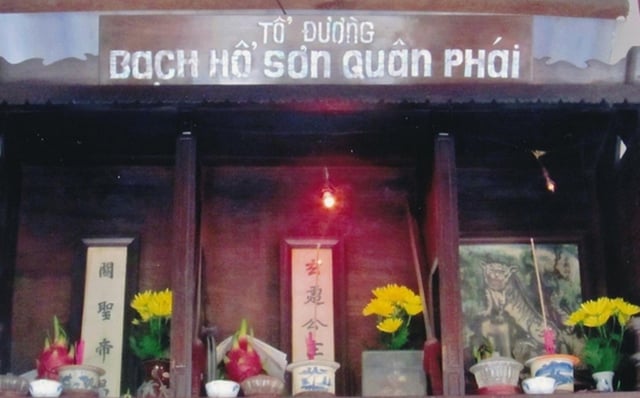
The ancestral altar of Bach Ho Temple in Trung Dong village, now in Phu Thuong ward, Hue city
PHOTO: TL
The excavation of Pho Loi River was completed in 1836 and was considered an outstanding achievement of the Nguyen Dynasty. Therefore, in 1837, King Minh Mang ordered the carving of the image of Pho Loi River into Nhan Dinh (1 of the 9 urns - Cuu Dinh) along with famous landscapes and typical products of the country such as: Nam sea, Ngu Binh mountain, Huong river, peacock, leopard, tortoiseshell, whale, lotus, Nam Tran fruit, sticky rice, ky nam... In the year Quy Mao (1843), King Thieu Tri, during a tour across Pho Loi River, erected a stone stele and carved a royal poem to praise the merits of his father King Minh Mang.
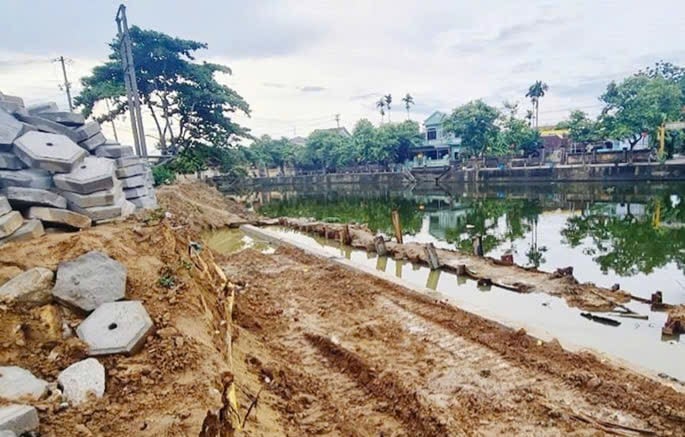
Pho Loi River - the river dug under Minh Mang's reign is now being renovated on both banks and dredged to drain floods.
Photo: Nguyen Khanh
In 1839, when the Pho Loi River was silted up, the king ordered military general Ta Quang Cu, Commander of the Central Military Command, to be in charge of dredging the Pho Loi River and also supervise the Anh Danh military training school. Commander Ta Quang Cu assigned Captain of the Royal Guard Nguyen Huu Hoa to supervise. From here, Mr. Nguyen Huu Hoa settled down and taught the Bach Ho Son Quan sect to his descendants.
It was not until the generation of Nguyen Huu Khanh, the 19th head of the Vo Ta - Bach Ho Son Quan sect in the ancient capital of Hue, the grandson of Captain Noi Hau Nguyen Huu Hoa, that he began to teach it to the outside world. Nguyen Huu Khanh passed it on to his son Nguyen Huu Can to become the 20th head of the sect. Master Can is a martial arts legend in the ancient capital of Hue. Vo Ta - Bach Ho Son Quan sect of the Nguyen Huu family on the Pho Loi river was taught more widely by Nguyen Huu Can, forming branches of the current Bach Ho sect in the ancient capital of Hue.
Nowadays, many parts of the Pho Loi River have been filled in, with a few remaining sections running parallel to Highway 49B (Hue - Thuan An). On both sides of the river are peaceful farming villages such as Duong Mong (Phu Thuong Ward), Duong No (now Duong No Ward). Here is the ancestral hall of the Vo Ho sect (Bach Ho Son Quan) located in Trung Dong village (now Phu Thuong Ward). The ancestral hall is simple but very majestic with 3 main altars, including Quan Thanh De Quan, Cuu Thien Huyen Nu and Than Vo Bach Ho. The annual death anniversary of the Bach Ho Son Quan sect is December 25, the same day that people in the Central region hold the "forest closing" ceremony at Ong Cop temple. In the worship rituals, on the altar of Mr. Bach Ho, there is always a plate of raw potatoes and a piece of raw meat.
The 21st generation head of the Bach Ho sect is the late martial artist Nguyen Huu Mong Dan. The current head (22nd generation) is Mr. Nguyen Huu Trung (Mr. Dan's younger brother) who lives in Dong Nai and has developed the sect to be strong in the Southeast region. Both are sons of the late martial artist Nguyen Huu Can.
From this cradle of Bach Ho martial arts school, many martial arts geniuses have been born, leaving their names to posterity and contributing to the training of many generations of students to continue developing the school, preserving and promoting the martial arts quintessence of their predecessors. (to be continued)
Source: https://thanhnien.vn/tinh-hoa-vo-hoc-xu-hue-vo-hoc-tren-hanh-trinh-mo-coi-185250623230850914.htm



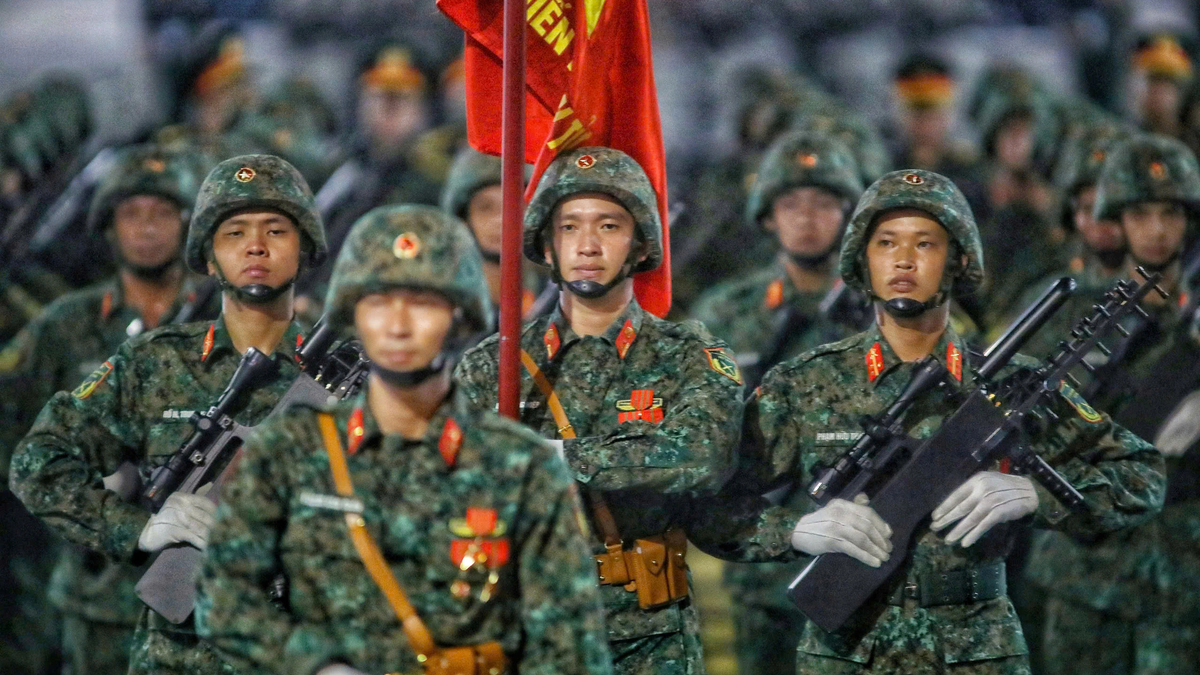
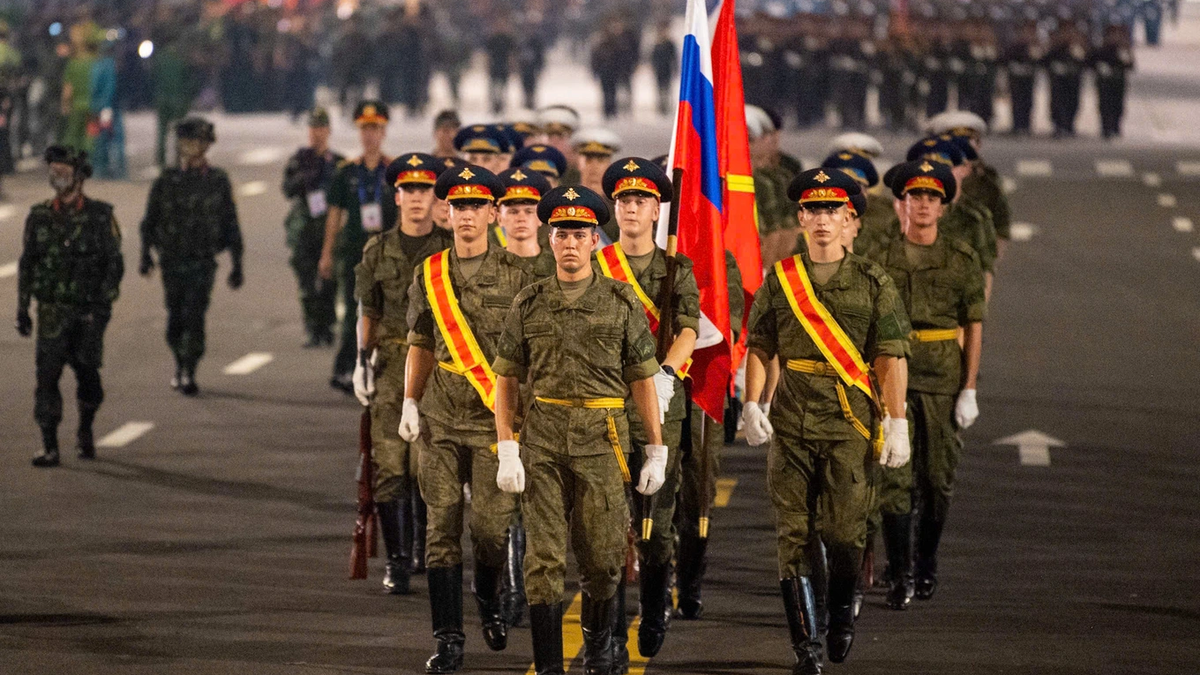
![[Photo] Parade blocks pass through Hang Khay-Trang Tien during the preliminary rehearsal](https://vphoto.vietnam.vn/thumb/1200x675/vietnam/resource/IMAGE/2025/8/27/456962fff72d40269327ac1d01426969)
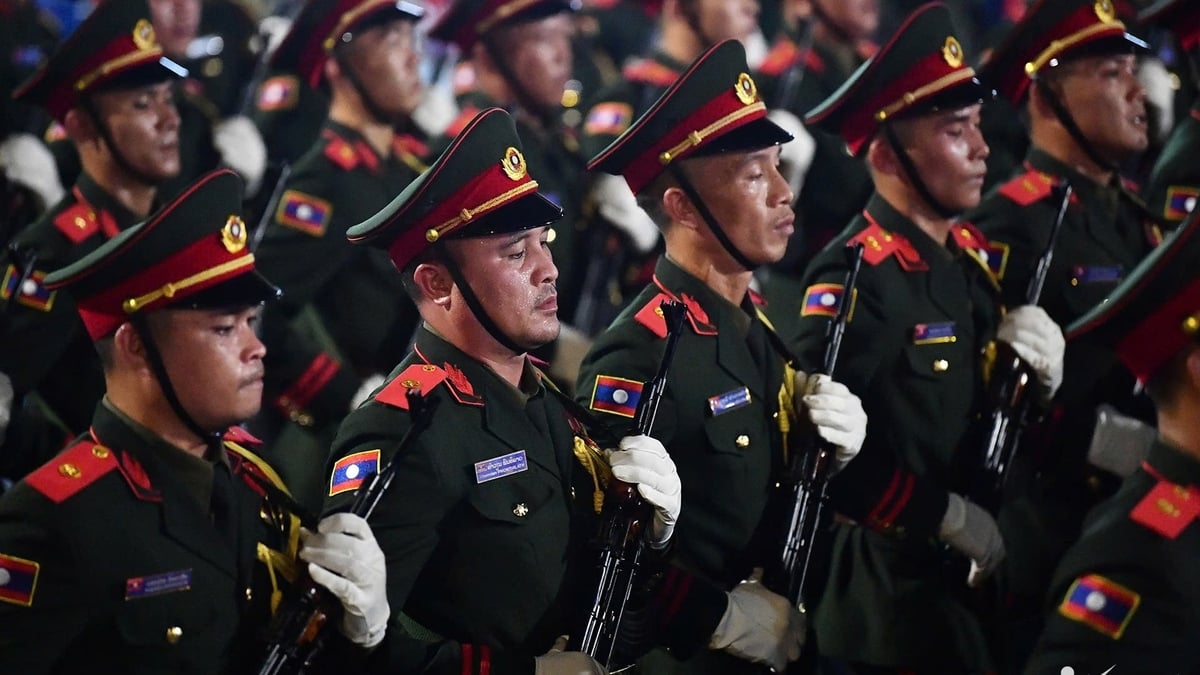
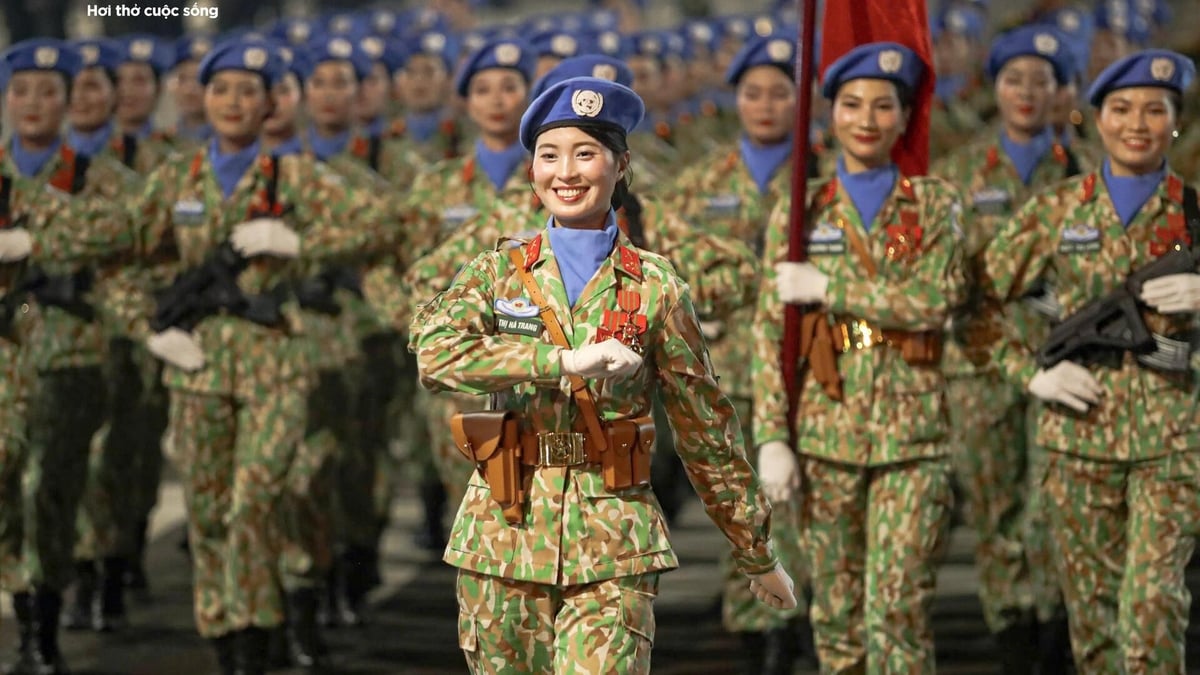
![[Photo] Images of the State-level preliminary rehearsal of the military parade at Ba Dinh Square](https://vphoto.vietnam.vn/thumb/1200x675/vietnam/resource/IMAGE/2025/8/27/807e4479c81f408ca16b916ba381b667)
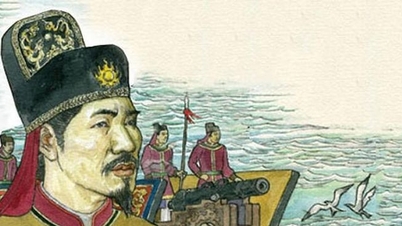



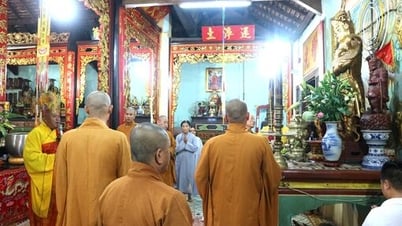

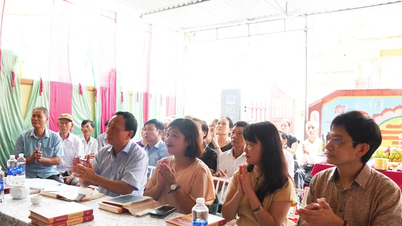

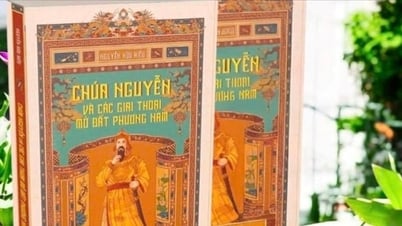

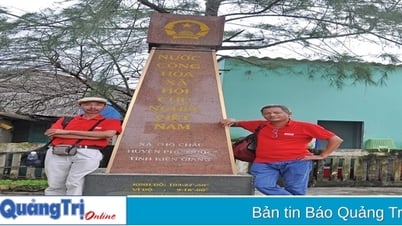














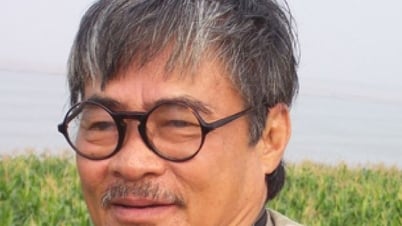


































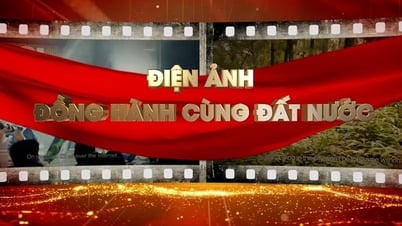

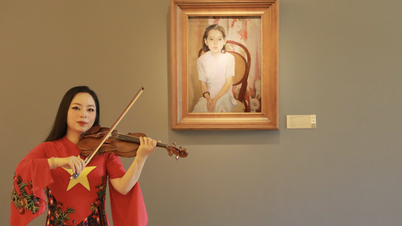
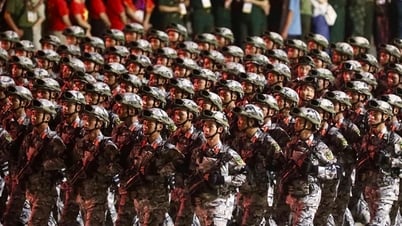






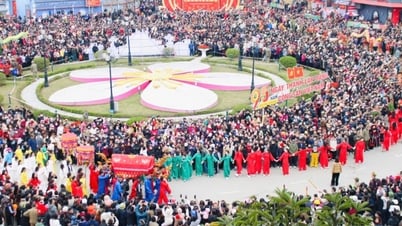

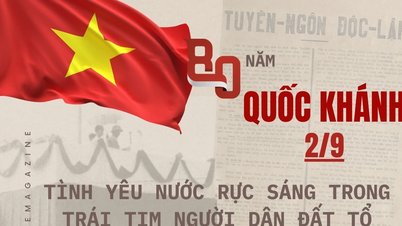






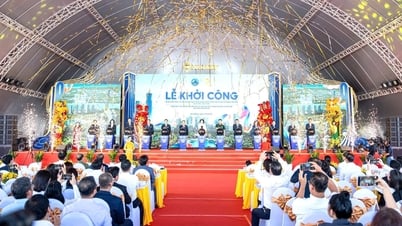











Comment (0)